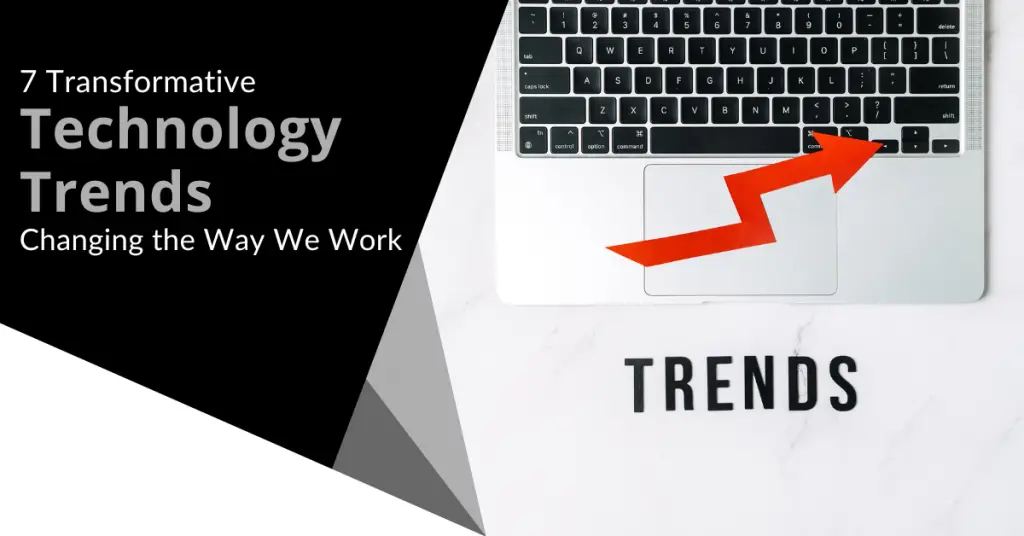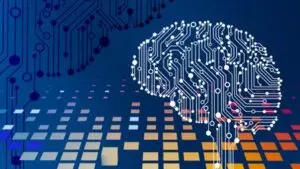
Exploring the Top Technology Trends Shaping the Future of Work in 2024 and Beyond
Advancements in technology are reshaping the world of work at an unprecedented pace. From artificial intelligence to web3, from the metaverse to the hybrid work model, we are experiencing a series of technological revolutions that are transforming how we communicate, collaborate, create, and innovate.
To stay ahead of the game, it’s essential to explore some of the most impactful technology trends that are changing the way we work. Here at JND Consulting Group we put a list of some of the most influential ones.
1. Artificial Intelligence
Artificial Intelligence (AI) and Generative AI are revolutionizing the workplace. These technologies enable automation, allowing teams to handle mundane tasks more efficiently. They free up human resources for more creative and strategic endeavors.
AI is not a new concept, but it has become more powerful and accessible in recent years. This is thanks to advances in computing power, data availability, and algorithm development.
Artificial intelligence is now augmenting and automating various aspects of work. This includes data analysis, customer service, image creation, product design, and more.
But AI also poses significant challenges and risks. This includes ethical dilemmas, social implications, and workforce displacement. Thus, it’s essential to adopt responsible and human-centric approaches to AI. As well as ensure that workers have the skills and support to adapt to the changing nature of work.
2. Remote Collaboration Tools
Advanced collaboration tools have facilitated the rise of remote work. These include video conferencing, project management software, and cloud-based document sharing platforms.
This technology empowers teams to collaborate seamlessly from different corners of the globe. These tools break down geographical barriers, allowing for efficient teamwork and real-time communication.
3. Hybrid Work Model
The hybrid work model combines remote and in-office work. This concept is not new, but it has become more prevalent in the wake of the Covid-19 pandemic.
The hybrid work model offers many benefits, such as increased productivity, reduced costs, improved work-life balance, enhanced employee satisfaction, and improved employee retention.
The hybrid work model requires workers to have new skills, tools, and strategies. For example, hybrid work requires workers to have several capabilities to work effectively. These include strong digital literacy, communication, collaboration, and self-management skills.
4. Web3: The Decentralized Internet
Web3 is a term that refers to the next generation of the internet based on decentralized technologies, such as blockchain, cryptocurrencies, smart contracts, and peer-to-peer networks.
Web3 aims to create a more open, transparent, secure, and democratic internet. One where users have more control over their own data, identity, and digital assets.
Web3 is transforming the way we work. It’s creating new business models, platforms, and communities. These are designed to be more inclusive, participatory, and innovative.
5. Internet of Things (IoT) in the Workplace
IoT devices are creating smart and optimized workplaces. This includes smart thermostats that adjust office temperatures based on occupancy. As well as wearable devices that track employees’ health and productivity. This connectivity enhances efficiency and reduces energy consumption. It also provides valuable data for informed decision-making.
6. Augmented Reality (AR) and Virtual Reality (VR)
AR and VR technologies are revolutionizing training, design, and customer interactions. In the workplace, AR and VR offer immersive training experiences. These allow employees to learn complex tasks in a simulated environment. These technologies are also used in product design, enabling professionals to visualize and modify prototypes in real time. This drives faster innovation cycles.
7.Cybersecurity Advancements
As digital technologies advance so do cybersecurity threats. Businesses are investing in advanced cybersecurity measures to protect sensitive data. As well as ensuring the privacy of employees and customers.
These transformative technology trends are shaping the future of work. Businesses that adapt and embrace these technologies gain a competitive edge. However, it’s important to note that these technologies pose challenges. Workforce training is essential to ensure employees can leverage these tools effectively. Additionally, there are ethical considerations about data privacy and security. As well as the impact of automation on employment. Striking a balance between technological advancement and human welfare is crucial, especially in this transformative era.
Navigating new technologies can be complex. There are pitfalls that can waste time and money. We can help you customize your transformation to fit your business goals.
Contact our team of experts today to learn more.

Smart Tactics to Reduce Cloud Waste at Your Business
Facebook Twitter LinkedIn Cloud computing has revolutionized the way businesses operate. It offers scalability, flexibility, and cost-efficiency. But cloud services also come with a downside:

Malware, You’re at greater risk than ever before.
Small and medium-sized businesses are at more risk of a malware attack than ever. It’s time to take action to protect your business. Here we tell you how.
Eye-opening Insights from the 2023 Annual Cybersecurity Attitudes and Behaviors Report
Facebook Twitter LinkedIn We are living in an era dominated by digital connectivity. You can’t overstate the importance of cybersecurity. As technology advances, so do

Be more productive with these Microsoft Edge features
In the never-ending mission to be more productive, the latest Microsoft Edge browser could be a powerful ally. We’re telling you about 3 of its best productivity features.

Is this the most dangerous phishing scam yet?
Bad news: Cyber criminals have yet another new phishing scam up their sleeves and it could be the most dangerous one yet. They’re using genuine subdomains that have been abandoned. We tell you how to stay safe.

AI Trends Sweeping the Cybersecurity Realm
As cyber threats evolve in complexity, AI has emerged as a formidable ally. It empowers organizations with advanced tools and techniques. Helping them to stay one step ahead of malicious actors.
In this exploration, we delve into cutting-edge AI trends. The trends that are reshaping the cybersecurity realm. As well as fortifying defenses against an ever-expanding array of cyber threats.
